From the moment puppies are born, a mother dog is immersed in a sensory-rich world of scent, touch, and sound that ties her to her litter. Hormonal surges ensure she is hyper‑responsive to their needs, creating an unbreakable connection in the early days. In this article we will repeat the same question many times that many owners naturally ask, do mother dogs miss their puppies when they’re gone, or do instincts override emotions?
We are gonna give many different answers on this question as the truth is a fascinating combination of instinct, memory, and possible emotional awareness. By exploring both the scientific evidence and heart‑warming real‑world observations, we can better understand the layers of the mother‑puppy bond. This insight can also guide breeders, rescues, and pet owners in providing the best care during and after separation.
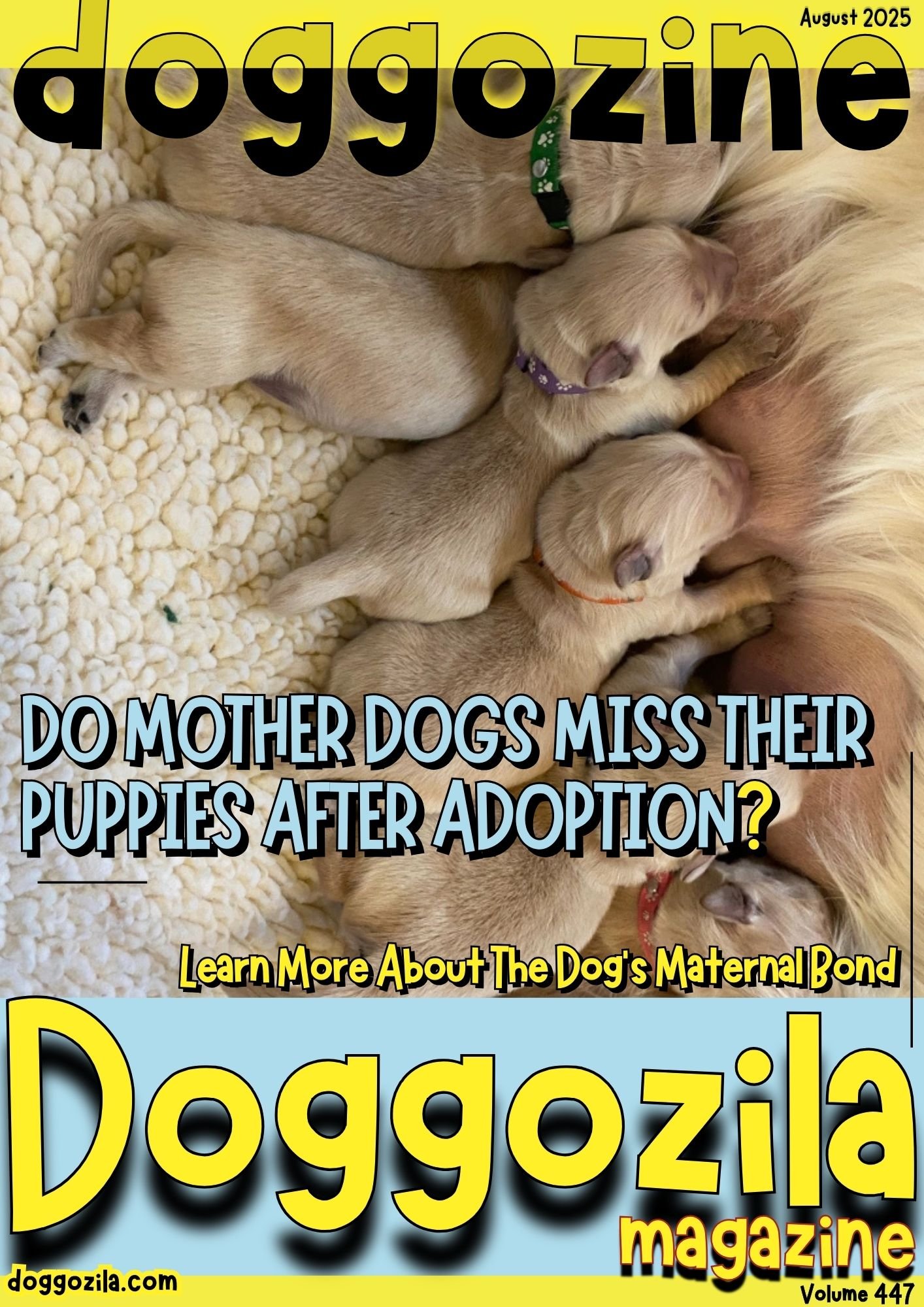
HOW DO MOTHER DOGS MISS THEIR PUPPIES IN THE FIRST DAYS?
In these delicate early hours, her maternal drive is so strong that even a brief absence can cause her to search or whine. She uses scent to verify her litter’s presence and responds instantly to their vocalizations. Owners often observe her restless behaviour if a puppy is removed for care, interpreting it as a sign of missing. Her drive here is biological survival instinct and comfort‑seeking combined.
Do mother dogs miss their puppies in a human sense at this stage? Perhaps not exactly, but their reactions demonstrate an urgent need for sensory confirmation. By keeping her routine stable, caregivers can respect this powerful phase. This helps maintain calm and reinforces trust between the dam and her human support team.
Physical Closeness and How Do Mother Dogs Miss Their Puppies?
The mother‑puppy relationship thrives on physical proximity like nursing, grooming, and gentle nudging. Removing a pup disrupts this dynamic and can prompt searching behavior. Her constant touch serves not just physical warmth but emotional reassurance to the pup.
In asking, do mother dogs miss their puppies, we might consider this disruption as a short‑term stressor. Reuniting the puppy quickly often restores balance. Maintaining that tactile continuity in early care routines promotes both physical and emotional well‑being. It’s a simple yet vital element in maternal care.
How Do Mother Dogs Miss Their Puppies When Handling Interrupts Routine?
Necessary interventions like weighing or vet exams can unsettle her sense of order. Even brief disruptions may lead to pacing or mild vocalization. These actions stem from her instinct to guard her litter’s safety at all times. When people ask, do mother dogs miss their puppies in these moments, the behavior reflects vigilance more than sorrow.
Minimizing environmental changes during handling keeps her stress low. Small, controlled adjustments to routine help her adapt while protecting the pups’ health. Such balance supports both medical care and emotional stability.
🔑 Key Points: In the immediate days after birth, a mother dog’s strong biological drive makes her restless and anxious if a puppy is missing, as she requires constant sensory confirmation of her litter’s presence for their survival.
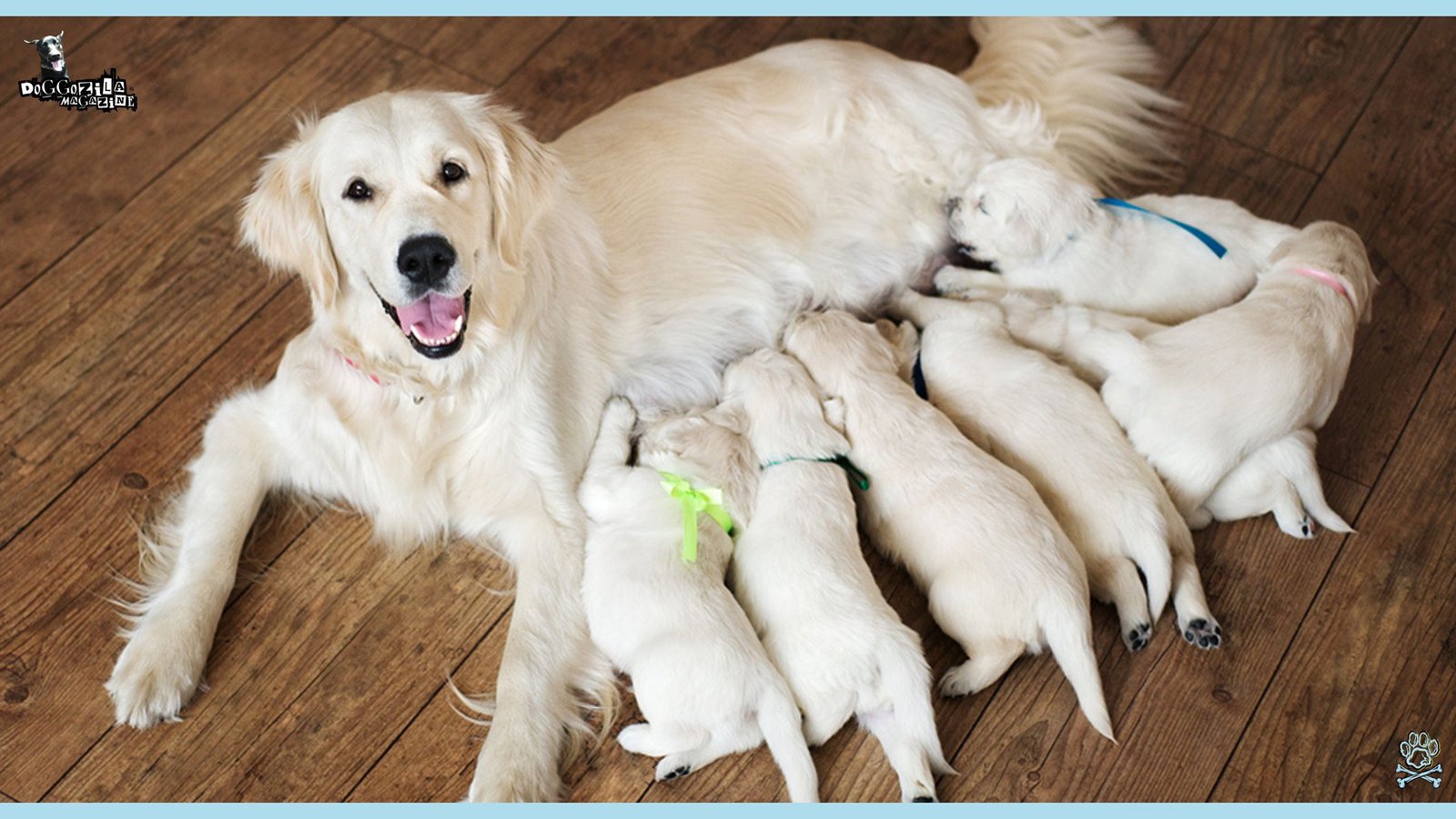
THE SCIENCE BEHIND MATERNAL MEMORY IN DOGS
Dog mothers are driven by an intricate mix of hormonal changes and learned responses. Oxytocin fuels nurturing behaviors, while scent memory imprints each puppy’s unique profile in her brain. These combined forces make the question do mother dogs miss their puppies one that’s both scientifically grounded and emotionally nuanced.
Dogs’ ability to store scent memories for years is well documented. This means recognition can occur long after the litter is gone. Understanding the biology behind these bonds enriches our appreciation for a dam’s enduring connection to her offspring.
Related Article Recommendation: Do Puppies Know If They Lost Their Mother?
Do Mother Dogs Miss Their Puppies in Long-Term Memory?
Dogs possess scent memory capabilities far exceeding our comprehension, enabling them to recognize individuals years later. A mother encountering her grown pup may exhibit joyful tail wags and face licking. The association is reinforced by past positive interactions during nursing and care.
When someone asks, do mother dogs miss their puppies, these joyful greetings offer compelling anecdotal evidence. Such moments suggest that recognition is not purely instinctive but may carry an emotional weight. Carefully observed reunions continue to inform how we interpret this behaviour. Long‑term memory in dogs is a blend of biology and life experience.
Hormonal Cycles of Mother Dogs
Hormones regulate every phase of motherhood, from whelping to weaning. As milk production declines, prolactin and oxytocin levels shift. Yet these changes don’t fully erase the associations built in early care. People wondering do mother dogs miss their puppies should note that memory may outlast intense maternal behaviors.
Behavioral changes at this stage reflect a natural adjustment rather than detachment. The underlying recognition remains stored in scent and sound cues. This resilience showcases the remarkable adaptability of the dog brain.
Mother Dogs Associative Learning
Associative learning allows dogs to connect specific stimuli with positive or negative experiences. In motherhood, this means linking puppy scents with the satisfaction of caregiving. When asked, do mother dogs miss their puppies, associative memory plays a large role.
Reunions may trigger similar emotional responses due to these learned associations. This type of learning helps maintain a social bond even without daily contact. It is a quiet but enduring form of connection. Such bonds highlight the emotional depth of dog behaviour.
🔑 Key Points: A mother dog’s bond is driven by hormones like oxytocin and powerful scent memory, which imprints each puppy’s unique profile in her brain, creating a connection that is both scientifically grounded and emotionally nuanced.
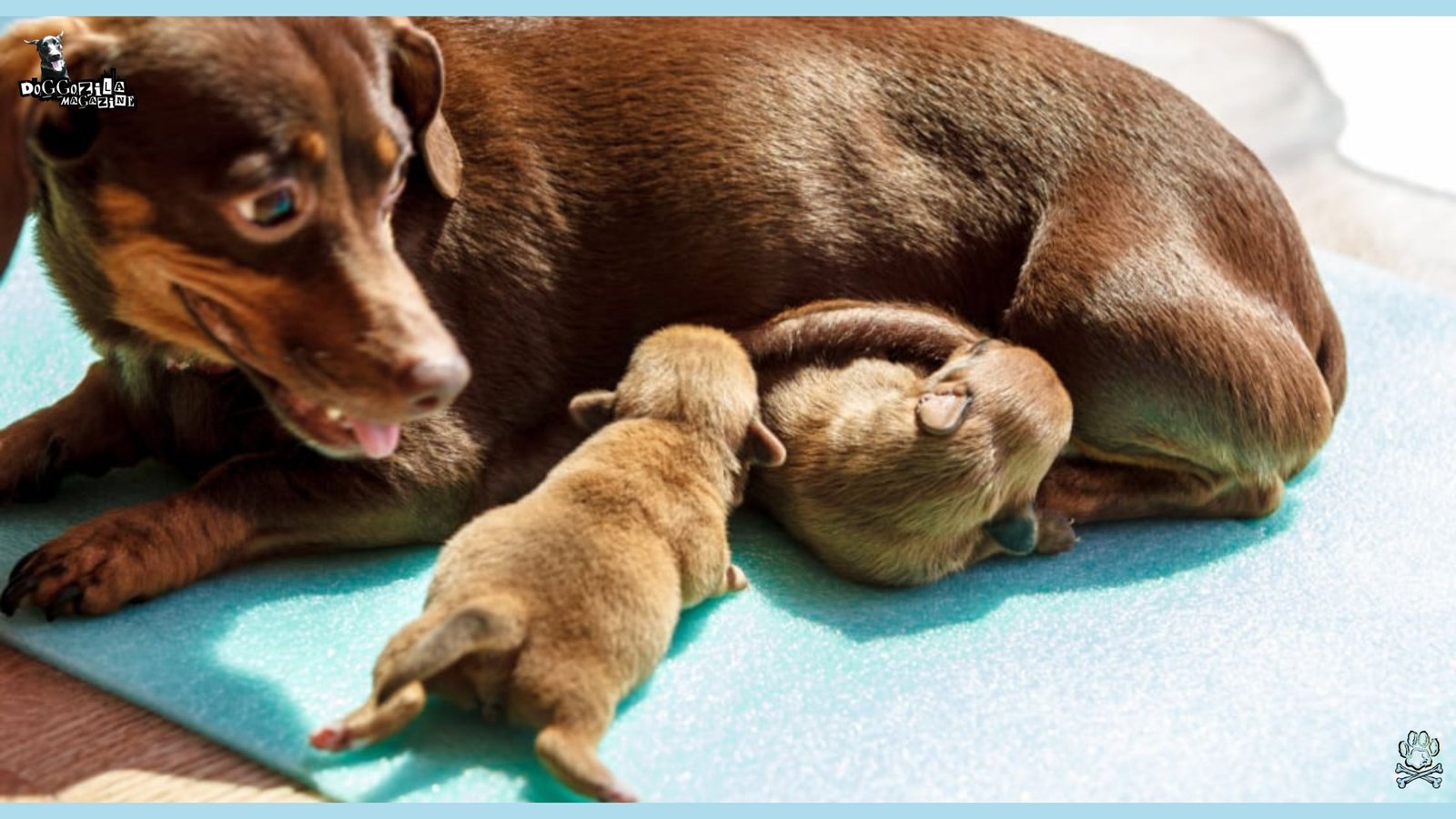
DO MOTHER DOGS MISS THEIR PUPPIES AFTER WEANING?
Weaning marks a significant developmental milestone for both mother and pups. Nursing decreases, solid foods are introduced, and independence grows. Some dams transition smoothly, while others appear wistful in the days following.
The question do mother dogs miss their puppies becomes more about observation and context here. Variations in breed temperament and environment play a role. Understanding this period can guide owners in easing the emotional adjustment. This is when emotional support from humans becomes especially valuable.
Do Mother Dogs Miss Their Puppies When All Leave at Once?
A sudden, complete separation can lead to temporary searching behaviors. Gradual re-homing often reduces stress for the mother. Observers questioning do mother dogs miss their puppies in this scenario should note the difference in behaviour based on transition style. The change disrupts daily patterns and familiar scents. Comfort items like blankets can help soften the loss. Within days, most mothers resume normal routines. Supportive care helps ease the adaptation.
What Behavioral Signs Show How Do Mother Dogs Miss Their Puppies?
Sniffing bedding, visiting empty spaces, and short vocalizations are common post‑separation signs. These actions often fade quickly as routines reset. Still, they highlight an awareness of the missing pups. When people explore do mother dogs miss their puppies, these subtle signals offer important clues. Recognizing them allows owners to respond empathetically. Early intervention with enrichment can ease this transition. Positive distraction can refocus her energy.
Managing the Transition When All Puppies Are Adopted
Maintaining a consistent schedule supports emotional stability. Play, exercise, and human companionship reduce signs of restlessness. People asking do mother dogs miss their puppies can help by making each day predictable and engaging.
Gradual introduction of new experiences helps her rebuild independence. Support from familiar humans reinforces her sense of security. Adaptation is usually smooth with proactive care. The key lies in balancing comfort with stimulation.
🔑 Key Points: After weaning, a mother’s behaviour depends on context and observation, as some transition smoothly while others appear wistful, with breed and environment playing a significant role in this adjustment.
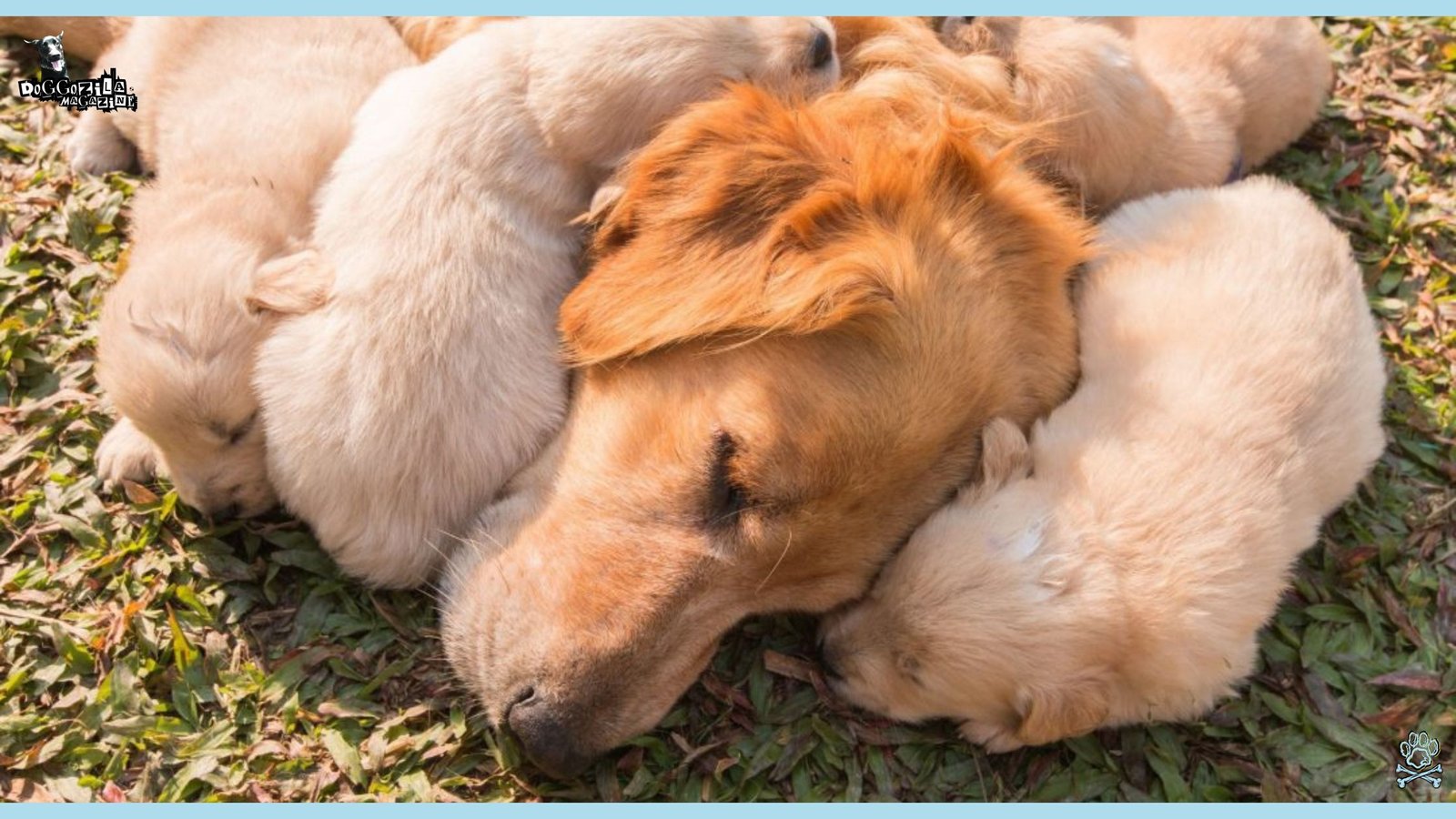
INSTINCT VERSUS EMOTION: HOW THE DOG MOTHERS LET GO?
Wild and domestic canids share instincts that encourage dispersal. This helps ensure offspring survival and reduces competition. For domestic dogs, these instincts still influence behaviour. Do mother dogs miss their puppies here depends on interpreting natural distancing as part of healthy development.
Owners often misinterpret independence‑encouraging actions as rejection. Recognizing the instinctive purpose prevents over‑humanizing dog behaviour. Letting go is an essential part of motherhood in all species.
Mother Dogs Training for Independence
Mothers may limit nursing or ignore demanding pups. This fosters self‑reliance. Observers might think do mother dogs miss their puppies less during this period, but it’s simply a shift in priorities. These boundaries prepare pups for new environments. It’s nature’s curriculum for life without constant maternal care. Such behaviour is healthy and necessary. Supporting this process benefits the pups’ development.
Breed Differences in Mother Dogs Behavior
Breed predispositions affect how mothers handle separation. Protective breeds may extend care, while independent breeds adapt quickly. Each dam’s personality also shapes her behaviour. Asking do mother dogs miss their puppies requires factoring in these variables. No two cases are identical. Tailoring care to breed traits helps support both mother and pups. This approach blends science with empathy.
Mother Dogs Emotional Intelligence
Some mothers appear to adjust behaviors based on each pup’s needs. This adaptability may signal emotional intelligence. When exploring do mother dogs miss their puppies, these tailored interactions are worth noting.
Such intelligence enhances maternal success. It also deepens our appreciation of the canine mind. Observing these subtleties adds richness to our understanding. They remind us that instinct and emotion can overlap.
🔑 Key Points: A mother dog’s natural instinct to encourage her puppies’ independence is often misinterpreted as rejection, but this distancing is a healthy and necessary part of their development.
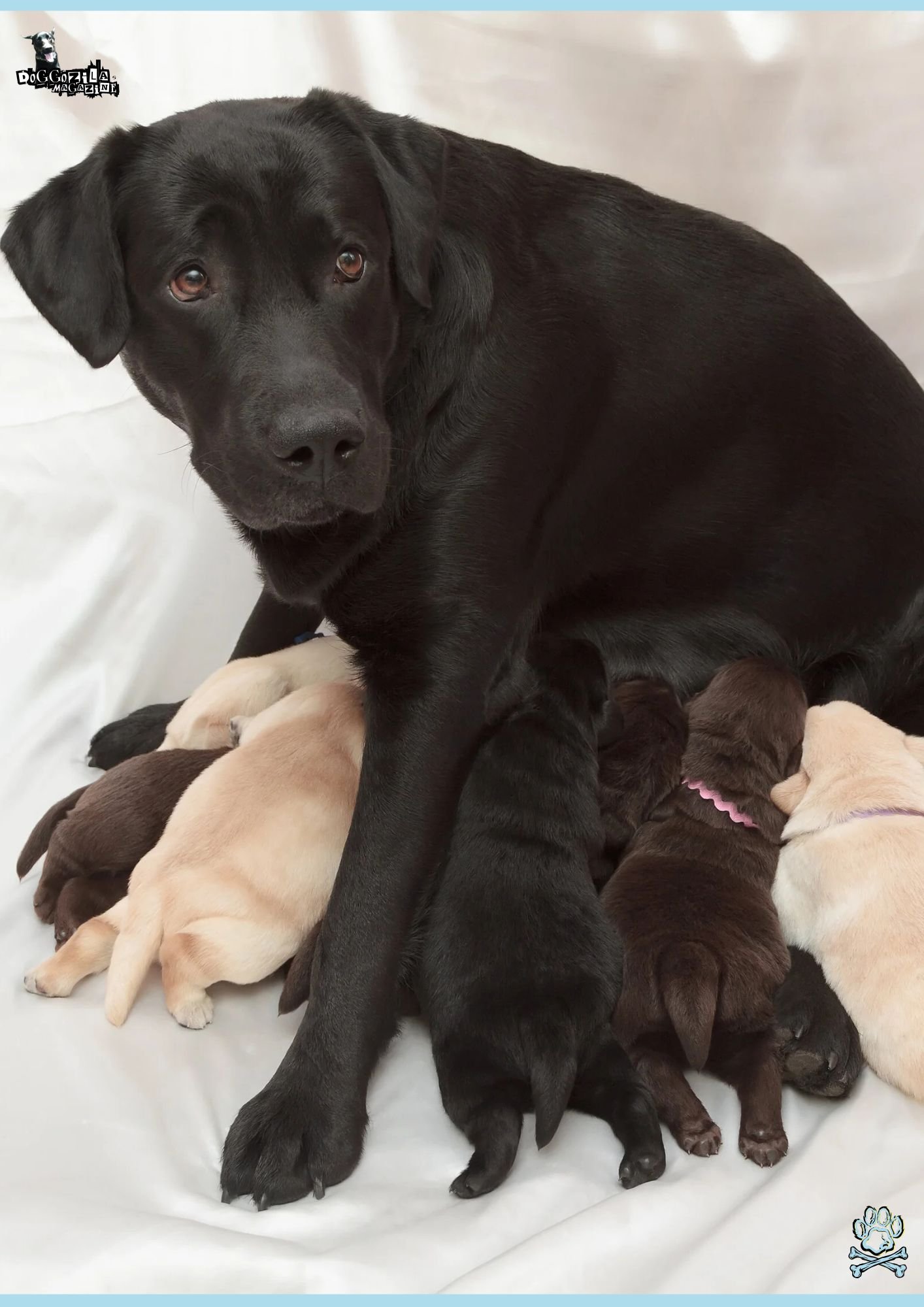
DO MOTHER DOGS MISS THEIR PUPPIES DURING REUNIONS?
Reunions between a dam and her grown puppies can be some of the most joyful moments in a dog owner’s life. The body language like soft eyes, relaxed posture, low wagging tail is hard to miss, and often prompts people to say with certainty that do mother dogs miss their puppies must be true. Yet while the joy is real, what we’re seeing may be a mix of scent recognition, positive association, and situational excitement.
Scientific observation supports the idea that mothers retain the ability to identify their offspring long after separation. These meetings, whether planned or unexpected, are a testament to the lasting influence of those early weeks. By understanding what fuels the behaviour, we can better stage reunions that are rewarding and stress‑free for both dogs.
Do Mother Dogs Miss Their Puppies More with Familiar Scents Present?
Bringing a familiar blanket or toy from puppyhood can intensify a reunion response. The dam may linger over the object, inhaling deeply before interacting with the pup. This suggests scent is one of the strongest links in her recognition process. For those asking, do mother dogs miss their puppies, scent cues provide compelling evidence of connection.
The reaction is often immediate and without hesitation, showing the strength of olfactory memory. These cues bypass visual confirmation entirely, proving that a dog’s world is deeply scent‑driven. It’s a sensory bridge between past and present, reawakening stored memories. Such preparation can make reunions smoother and more meaningful.
How Social Behaviors Show That Mother Dogs Miss Her Babies?
Once recognition kicks in, social behaviors often mirror those from puppyhood like gentle grooming, muzzle nudging, and soft play invitations. These actions are not random, they are rooted in early care routines. Observers focused on the do mother dogs miss their puppies question can see how these familiar gestures communicate trust and affection.
They also reaffirm the pup’s place within the dam’s social memory. Some mothers may even resume subtle teaching behaviors, correcting over‑excitement with calm firmness. This echoes the balance between nurture and structure established in early life. In short, the relationship adapts, but its roots remain recognizable.
Controlled Settings When Mother Dogs Reunite with Her Puppies
Neutral, calm environments help prevent overstimulation during reunions. A quiet park or enclosed yard allows natural behaviour without the chaos of unfamiliar stimuli. For those wondering do mother dogs miss their puppies, this controlled setup ensures the focus stays on the interaction.
It minimizes potential stress and makes the greeting more enjoyable for both dogs. Allowing the pair to approach at their own pace reinforces trust. Positive, low‑pressure conditions increase the likelihood of a sustained, happy exchange. Proper planning makes all the difference between a rushed sniff and a memorable re-connection.
🔑 Key Points: Reunions often feature joyful recognition, which is a real mix of scent memory and positive association, though it may not be a direct sign that the mother was actively missing her grown puppy.
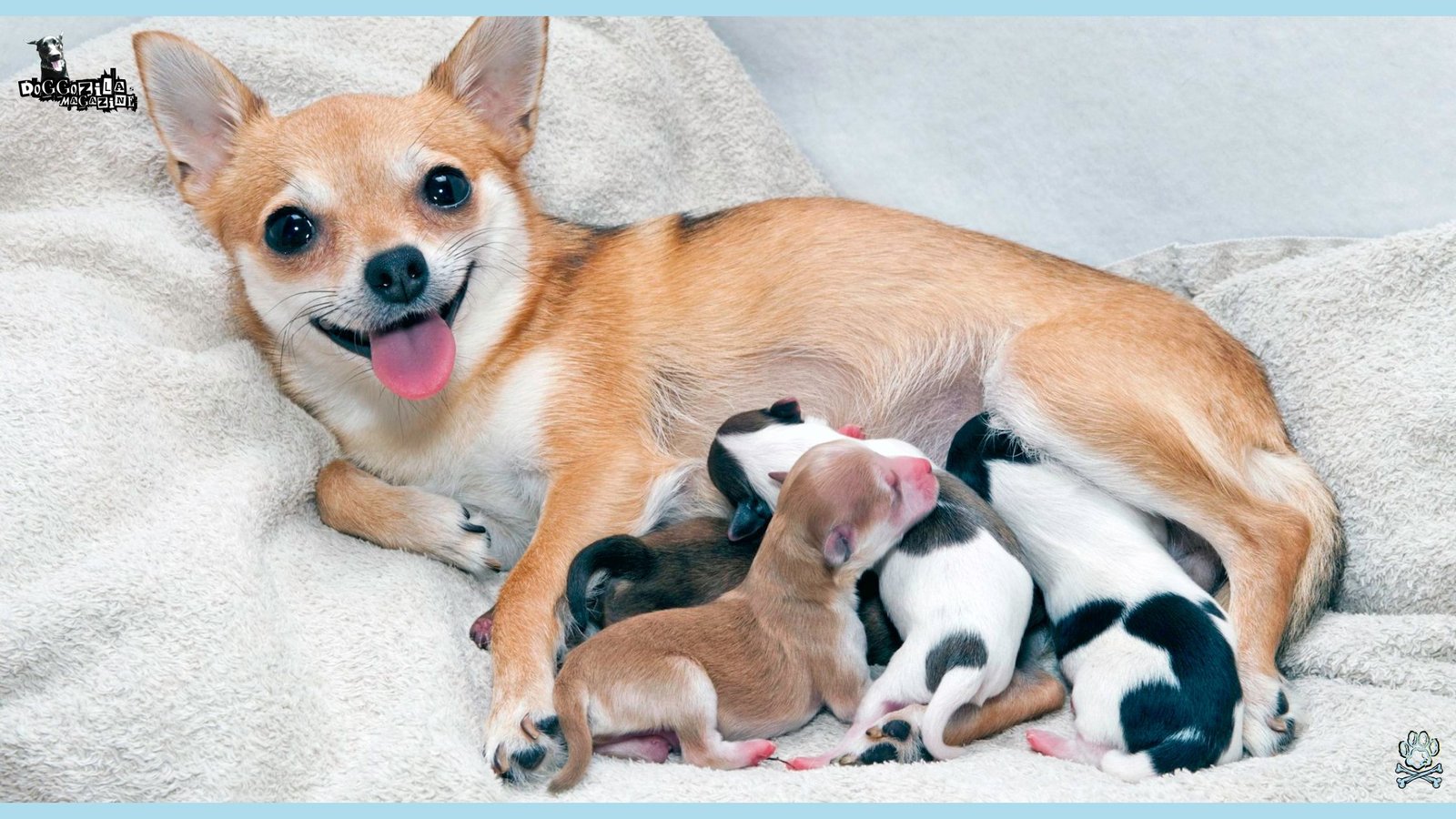
EMOTIONAL INTELLIGENCE IN THE MOTHER‑PUPPY RELATIONSHIP
Maternal care in dogs often demonstrates adaptability and sensitivity that suggest a form of emotional intelligence. The way a dam adjusts her behaviour to each pup’s needs hints at awareness beyond simple instinct. This complexity makes the do mother dogs miss their puppies discussion much richer.
Emotional intelligence in dogs is an emerging research field, and motherhood provides one of the clearest windows into it. Observers see flexibility, patience, and changes in response depending on context. These skills may also help a dam transition when her litter leaves. By recognizing and respecting this adaptability, owners can support her mental well‑being.
Do Mother Dogs Miss Their Puppies When Seeing Other Litters?
Some dams display visible interest and sometimes a touch of restlessness when exposed to another female’s puppies. Scent and sound from the new litter may reactivate maternal memories. This is a key behaviour to examine for the do mother dogs miss their puppies question.
The response could include soft vocalizations, cautious approaches, or attempts to engage in gentle care. Not all mothers react this way, but those that do may be experiencing a form of maternal echo. Such encounters remind us that the maternal script can be re‑read even after the original litter has gone. They also show how environment can influence maternal behaviour.
Emotional Flexibility in Mother Dogs and Puppies
Dogs capable of adjusting their behavior to suit different situations demonstrate a kind of emotional agility. In motherhood, this might mean stricter boundaries with older pups but tender care for the very young. People exploring do mother dogs miss their puppies should note how such flexibility reflects a nuanced understanding of relationships.
It’s not simply about having or not having emotional capacity, it’s about how that capacity is applied. This adaptability benefits survival in wild canids and social harmony in domestic settings. It’s one more reason to view dog motherhood as a layered, sophisticated process.
How Human Interaction is Influencing The Mother Dogs To Miss Their Puppies?
The presence and involvement of trusted humans can impact how a mother transitions after her puppies leave. Supportive human interaction offers comfort and structure during this change. For owners considering do mother dogs miss their puppies, the human role is significant.
Consistency in routine, gentle affection, and enriched environments can all help the dam adjust without distress. She learns to rely on her human companions for social fulfillment. This shift maintains her emotional health and prevents prolonged searching behaviors.
🔑 Key Points: A mother dog often shows emotional intelligence by adapting her behaviour to each pup’s needs, suggesting an awareness that goes beyond simple instinct.
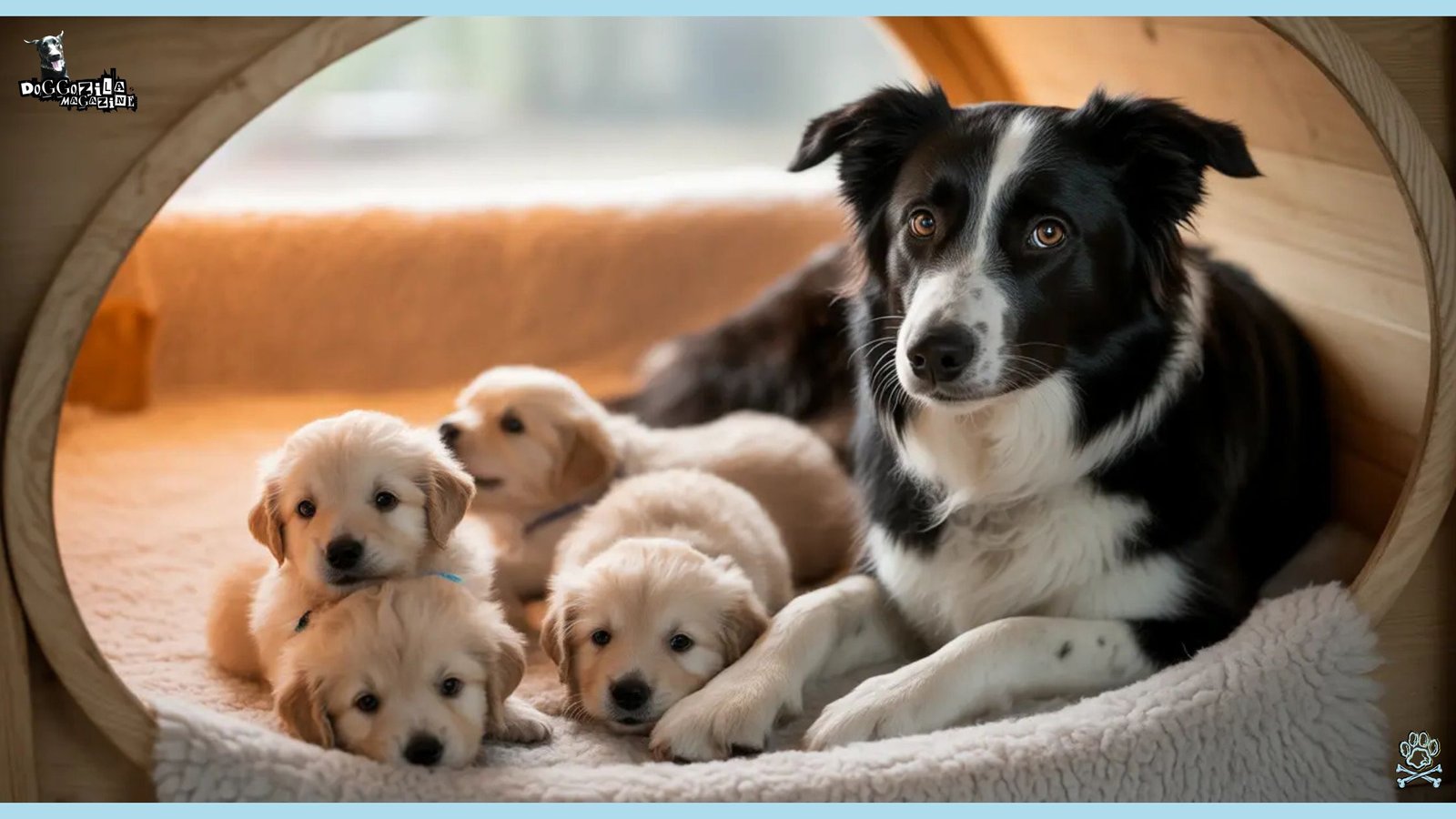
DO MOTHER DOGS MISS THEIR PUPPIES IN MULTI‑LITTER HOUSEHOLDS?
In homes where a dam has multiple litters, her maternal role evolves with each one. Some mothers retain recognition and a unique tolerance for their earlier offspring, especially if they remain in the household. This makes the do mother dogs miss their puppies question more about bond evolution than absence.
Watching these dynamics provides a rare insight into long‑term dog social memory. The relationships may soften over time, but the outlines remain. Understanding these patterns can help owners manage multi‑dog homes more harmoniously.
Mother Dogs Recognition Across Litters
Even years after the first litter, some mothers will respond differently to their own grown pups than to unrelated dogs. This is one of the strongest anecdotal arguments for long‑term recognition. For those asking do mother dogs miss their puppies, such selective behavior suggests memory anchored in more than just habit.
It might include scent recognition, voice cues, and shared experiences. These elements combine to create a distinctive social category for her offspring. This selective recognition is a quiet but profound reminder of the depth of the maternal link.
Mother Dogs Pack Structure
When older offspring stay in the home, the dam’s role shifts toward leadership and social guidance. She may still show affection but will also enforce household rules. People questioning do mother dogs miss their puppies in this context should see the change as an adaptation, not a fading bond. The pup becomes a peer, and interactions evolve accordingly. This change supports stability in the home pack. It’s a natural development in long‑term canine relationships.
Related Article Recommendation: Dog Training Secrets To Mastering Techniques
Social Stability in Mother Dogs
Stable pack dynamics rely on predictable interactions. A dam familiar with her offspring can help maintain this balance. For those invested in the do mother dogs miss their puppies question, this ongoing influence shows that bonds can extend into social cohesion. The mother’s presence becomes a touchstone for group harmony. This role may not look like early motherhood, but it’s no less important.
🔑 Key Points: In multi-litter households, the maternal bond evolves rather than fades, with some mothers retaining long-term recognition and a unique tolerance for their own offspring, aiding in pack stability.
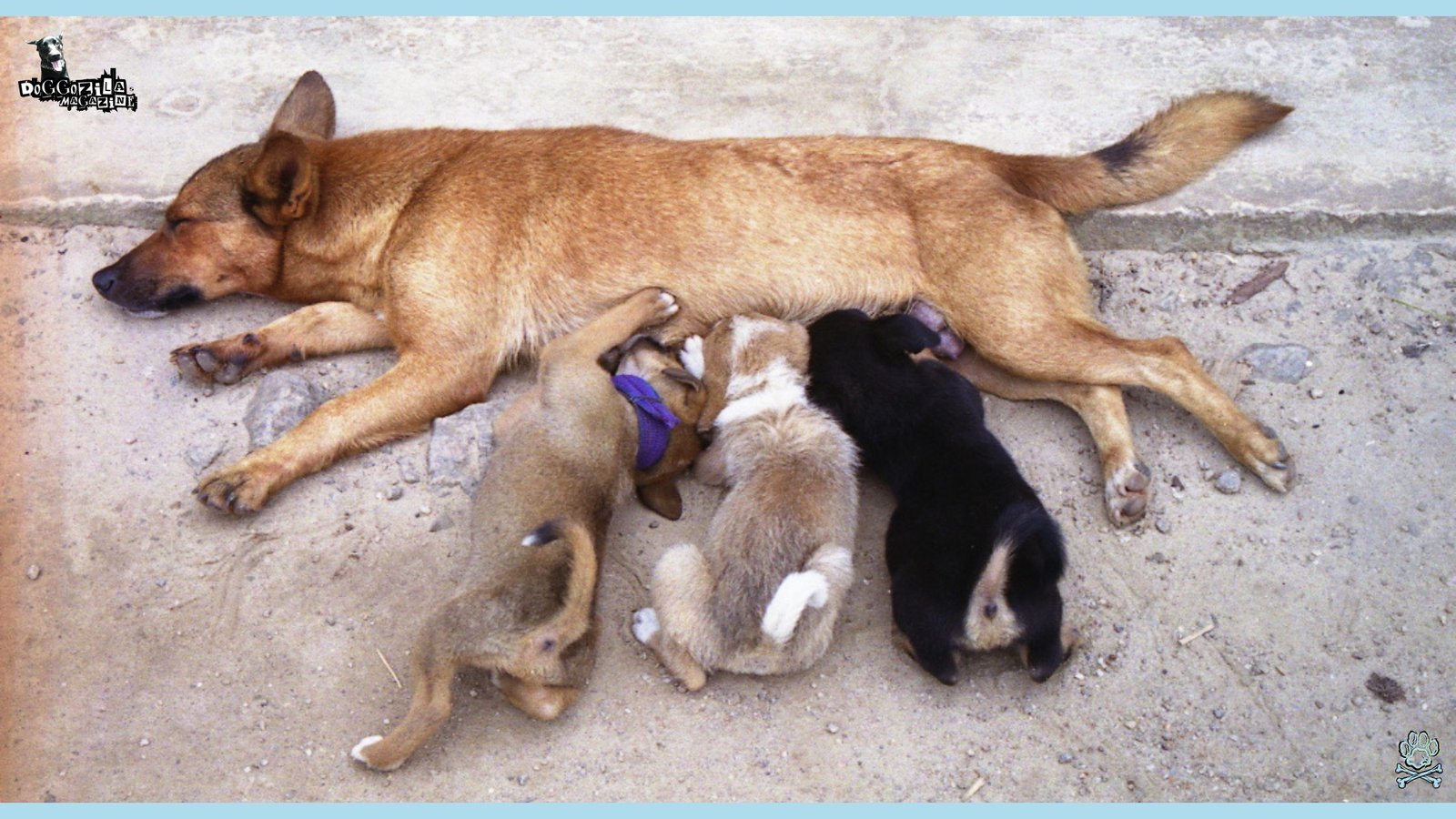
HOW TO HELP A MOTHER DOG ADJUST AFTER SEPARATION?
A smooth transition after puppies leave is vital for a mother’s physical and emotional health. Predictable routines, mental stimulation, and human companionship all play a part. Knowing how to respond to signs that do mother dogs miss their puppies allows owners to provide targeted support.
With the right care, most dams return to their pre‑litter selves quickly. This period can also strengthen the human‑dog bond. Owners who take the time to guide their dogs through it set the stage for long‑term well‑being.
Do Mother Dogs Miss Their Puppies Less with Enrichment?
Enrichment activities like scent trails, puzzle feeders, new walks will help redirect a mother dog’s focus. For those wondering do mother dogs miss their puppies, enrichment works by replacing the mental engagement she once had with her litter. It also prevents boredom‑related behaviors. Variety keeps her mentally sharp and emotionally balanced. Incorporating these activities into daily life benefits any dog, not just mothers post‑weaning.
Nutrition and Rest When Mother Dogs Give or Lose Her Babies
Post‑litter recovery requires high‑quality nutrition to rebuild energy reserves. Adequate rest is equally important. Owners concerned about do mother dogs miss their puppies should focus on these basics first. A well‑rested, well‑fed dam is better equipped to adapt emotionally. Comfort and care during this time set her up for a smooth transition. Good health supports emotional resilience.
Monitoring Behavior When Mother Dogs Do Miss Their Puppies
Vigilant observation in the weeks after separation helps catch signs of distress early. Changes in appetite, excessive pacing, or lethargy may indicate the adjustment is taking longer than usual. For those tracking the do mother dogs miss their puppies question, this monitoring provides valuable feedback. Early intervention prevents minor issues from becoming entrenched habits. Partnering with a vet ensures both physical and behavioral needs are met.
🔑 Key Points: A smooth transition is achieved through predictable routines, mental enrichment, and human companionship, which help redirect the mother’s focus and support her emotional and physical well-being.
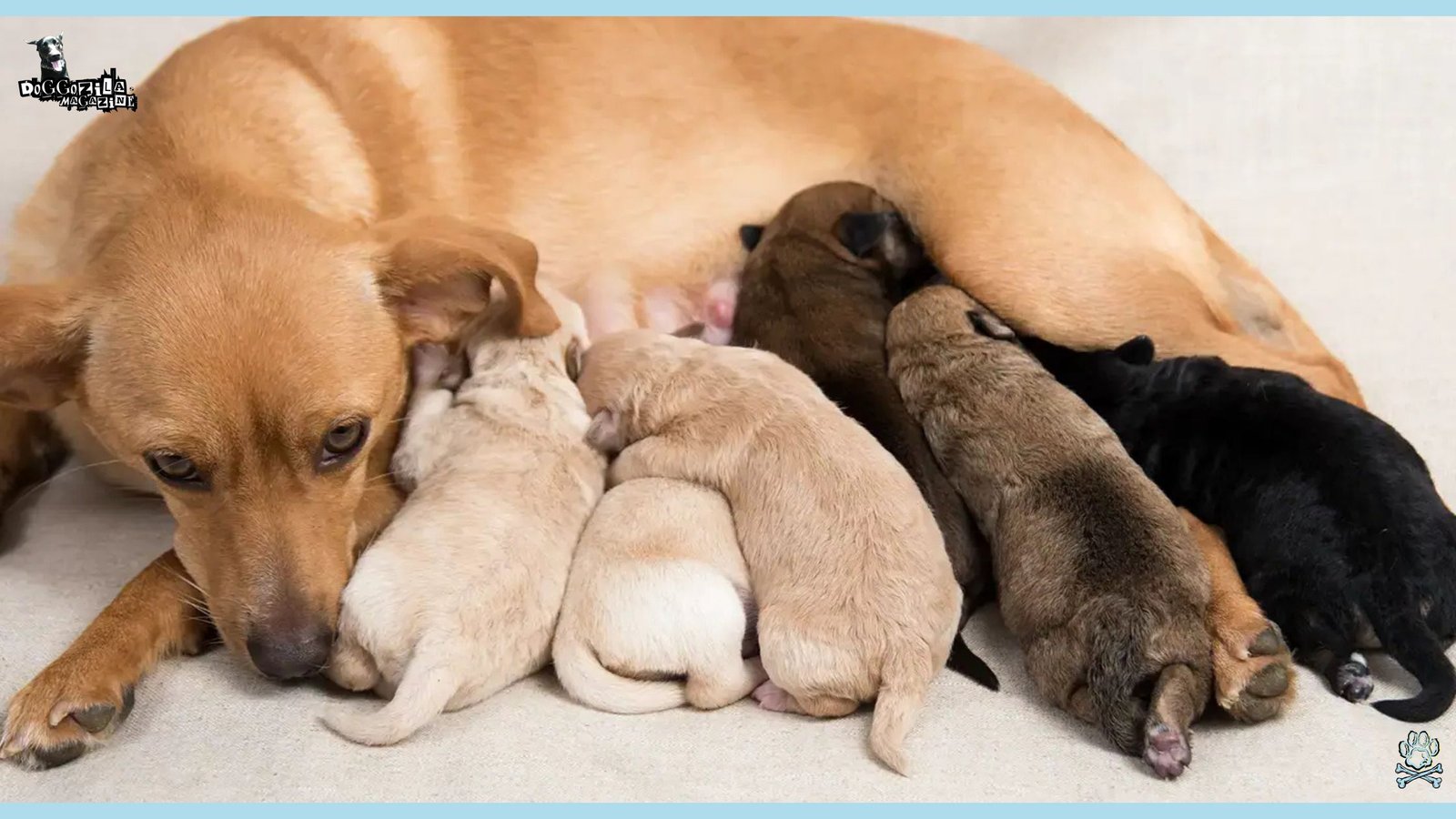
CELEBRATING THE BOND WHILE SUPPORTING INDEPENDENCE
A mother’s journey from birth to letting go is a mix of instinct, learning, and adaptability. Recognizing the truth behind do mother dogs miss their puppies lets owners offer both empathy and practical help. The bond doesn’t vanish but it transforms, making way for the next chapter in both lives.
This evolution mirrors the best parts of the human‑dog relationship such as trust, memory, and mutual respect. Owners who honor the process can deepen their connection with their dogs. It’s a reminder that love in the animal world takes many forms, each worth cherished as an ongoing narrative of care, memory, and growth.
There is Only One Biological Doggie Mother
When reflecting on a dam’s journey, it becomes clear that the question do mother dogs miss their puppies has no single, absolute answer, because each mother, each litter, and each set of circumstances shapes the outcome differently. For some, the transition is swift and instinct‑driven, marked by a natural return to independence.
For others, there may be lingering recognition, moments of apparent longing, and an enduring awareness when familiar scents or sights resurface. This spectrum isn’t a contradiction, it’s a testament to the complexity of dog motherhood. As guardians, breeders, or adopters, our role is to respect both the instinctive and emotional aspects of this journey.
That means not only providing the physical support but also nutritious dog food, a comfortable resting space, and a balanced routine, but also recognizing and easing the subtle behavioral shifts that follow separation. Whether the dam seems to “miss” her puppies or simply move on, she benefits from structure, enrichment, and the steady reassurance of human companionship.
The Final Takeaway
Ultimately, the real measure of our understanding lies in our ability to honor the mother‑puppy bond without distorting it through purely human lenses. We can celebrate her attentive early weeks, her skill in guiding her pups toward independence, and her quiet adaptability afterward. And in doing so, we keep the spirit of her bond alive, not in constant physical presence, but in the enduring traces of scent, memory, and the shared history of those first crucial weeks.
In the end, do mother dogs miss their puppies is as much about our connection to them as it is about theirs to each other. By caring for and observing them with empathy, we see how love in the dog world can be both fierce and fleeting, practical yet profound. It’s a reminder that in every stage, from the whelping box to the moment of letting go, a mother’s work, and her impact, leaves a mark that lasts far longer than the time they physically share.
While do mother dogs miss their puppies may not be a straightforward yes-or-no question, one thing is clear, their love is expressed through nurturing, teaching, and finally, releasing their offspring into the world.
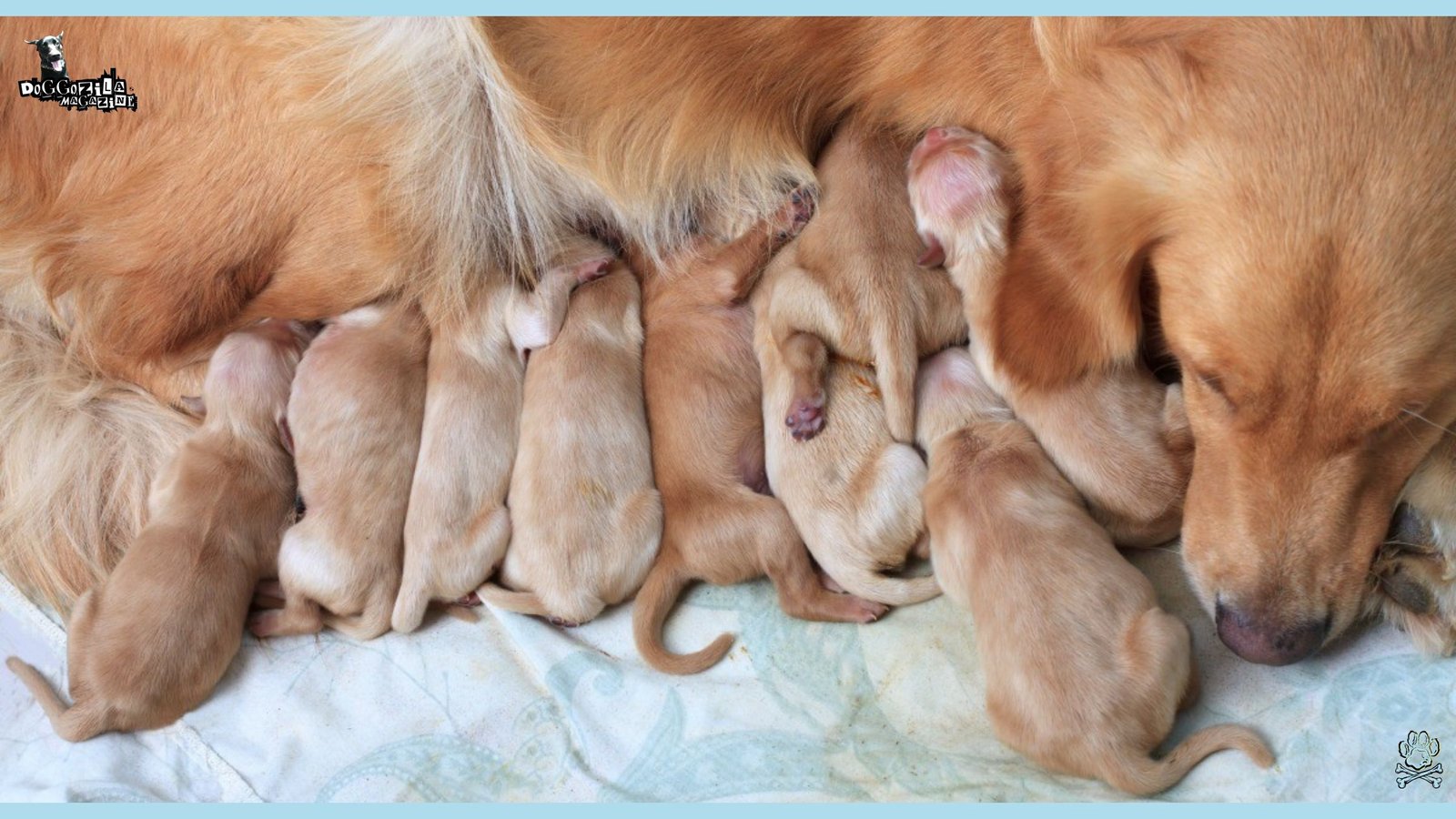
As we watch our dogs grow and thrive, we’re reminded of the beauty in letting go and the endless capacity of the dog heart to love again.









